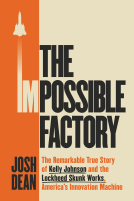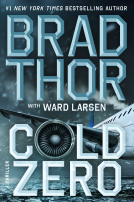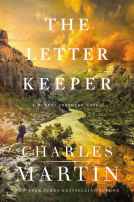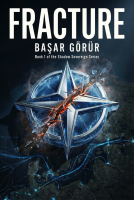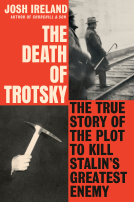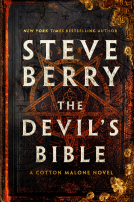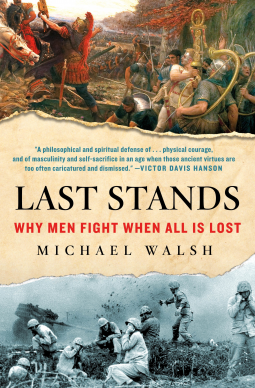
Last Stands
Why Men Fight When All Is Lost
by Michael Walsh
This title was previously available on NetGalley and is now archived.
Send NetGalley books directly to your Kindle or Kindle app
1
To read on a Kindle or Kindle app, please add kindle@netgalley.com as an approved email address to receive files in your Amazon account. Click here for step-by-step instructions.
2
Also find your Kindle email address within your Amazon account, and enter it here.
Pub Date Dec 01 2020 | Archive Date Dec 01 2020
Talking about this book? Use #LastStands #NetGalley. More hashtag tips!
Description
"A philosophical and spiritual defense of the premodern world, of the tragic view, of physical courage, and of masculinity and self-sacrifice in an age when those ancient virtues are too often caricatured and dismissed."
—Victor Davis Hanson
Award-winning author Michael Walsh celebrates the masculine attributes of heroism that forged American civilization and Western culture by exploring historical battles in which soldiers chose death over dishonor in Last Stands: Why Men Fight When All Is Lost.
In our contemporary era, men are increasingly denied their heritage as warriors. A survival instinct that’s part of the human condition, the drive to wage war is natural. Without war, the United States would not exist. The technology that has eased manual labor, extended lifespans, and become an integral part of our lives and culture has often evolved from wartime scientific advancements. War is necessary to defend the social and political principles that define the virtues and freedoms of America and other Western nations. We should not be ashamed of the heroes who sacrificed their lives to build a better world. We should be honoring them.
The son of a Korean War veteran of the Inchon landing and the battle of the Chosin Reservoir with the U.S. Marine Corps, Michael Walsh knows all about heroism, valor, and the call of duty that requires men to fight for something greater than themselves to protect their families, fellow countrymen, and most of all their fellow soldiers. In Last Stands, Walsh reveals the causes and outcomes of more than a dozen battles in which a small fighting force refused to surrender to a far larger force, often dying to the last man.
From the Spartans’ defiance at Thermopylae and Roland’s epic defense of Charlemagne’s rear guard at Ronceveaux Pass, through Santa Anna’s siege of the Alamo defended by Davy Crockett and Jim Bowie to the skirmish at Little Big Horn between Crazy Horse’s Sioux nation and George Armstrong Custer’s Seventh Calvary, to the Soviets’ titanic struggle against the German Wehrmacht at Stalingrad, and more, Walsh reminds us all of the debt we owe to heroes willing to risk their lives against overwhelming odds—and how these sacrifices and battles are not only a part of military history but our common civilizational heritage.
Available Editions
| EDITION | Other Format |
| ISBN | 9781250217080 |
| PRICE | $28.99 (USD) |
| PAGES | 368 |
Average rating from 11 members
Featured Reviews
 William H, Reviewer
William H, Reviewer
I recently finished reading an advance examination copy of Michael Walsh's "Last Stands: Why Men Fight When All Is Lost," soon to be published by St. Martin's Press. It is an intriguing and unexpected approach to its subject matter. Anyone approaching the text should carefully examine the second part of the title, for this is no detailed attempt to reexamine the events of particular battles, and it is in no sense comprehensive. Instead, it examines several of the best known "last stands" (as well as a couple of truly obscure ones) and carefully places them in their cultural contexts. This is accomplished by a basic description of the battle embedded in a contextual discussion of its short and long term consequences. The basic question that informs these cultural speculations is the second part of the title. In some sense the author is a sort of contextual translator, trying to explain how these events, profoundly rooted in our past, make little sense to us because of the cultural changes that have occurred in Western Civilization over the past few centuries. The author makes a compelling case for his thesis although it will not find favor with many of those who will find it profoundly politically incorrect. There is much discussion of masculinity as well honor, duty, patriotism and other virtues traditionally associated with military culture. Notably, the author relies heavily on literary artifacts to demonstrate how these kinds of military actions, which can seem so alien to modern consciousness, can be interpreted in a more sympathetic fashion leading to greater understanding by trying to get past our modern biases. In each case examined, and they have significant differences between them, It quickly becomes apparent that we must suspend some of our modern prejudices to truly understand how actions which are easily dismissed as suicidal or foolish can (and frequently do) lead to the creation of important myths and legends which shape our societies. What is more, the arguments made suggest that this is obvious to the soldiers or warriors involved even as they sacrifice their lives fully understanding that their sacrifice will have consequences that will reflect well on them. Read it and think about it. You may not agree with all of it, but you will surely find your interest piqued.
 Ranger H, Educator
Ranger H, Educator
Free ARC from Net Galley
This is not a rehash of facts, but a drill down into the why men fight when all is lost.
This will be a strange book to most in a world of phones, tweets, and 3 mins of fame. This is an in depth study of honor and of seeing the true event horizon that one can have often thru belief and sheer will.
 Dee A, Reviewer
Dee A, Reviewer
The author’s Introduction should neither be skipped nor skimmed, as it outlines the purpose of the book. I will warn you that the author does not hold back in presenting his ideas, and it is a certainty he will ruffle some feathers while others will nod their heads in fervent agreement. This book talks about the ancient values that men held dear, values that are caught in a push-pull situation in today’s world. To quote the author, “…the natural state of man is war. Our most fundamental myths and legends concern war, not peace.” No matter what one thinks, controversy is good and spurs growth. Or, at the very least, scintillating conversation.
Author Michael Walsh has assembled a book of “Last Stands,” and goes into depth on each of the selected battles explaining why, even though there is no hope of winning, men continue to fight. True, this has been done before, and multiple times on some of these stories. Where Mr. Wash’s book stands apart is his attention to detail and doing everything he can to inject a humanism into each chapter. He does this through numerous footnotes, giving the reader additional information that, while it may not pertain to furthering the current point, it does provide side information about the combatants. In other words, rather than reduce the people to nothing more than pieces on a chessboard, the author allows us to see different facets of their personalities and traits and thus gain greater insight into their actions.
Personally, I was happy to see some of the very early battles. While I knew the basic stories, it was interesting to flesh out my knowledge of these events in history, especially since each had (or missed out on having) an effect on the world going forward. Mr. Walsh takes the time to point out the possibilities. Some of them (Custer’s Last Stand, for instance) had much greater implications than I had ever considered before. The author also visits the much-repeated truism, that history repeats itself. For instance, when discussing the end of the Roman Empire, he states it “…illustrated the folly of a declining native birth rate and generous immigration from inimical lands and peoples.” Ruffling feathers, indeed.
Overall, very interesting and chockful of knowledge and informative trivia. Five stars.
My thanks to NetGalley and St. Martin’s Press for a complimentary electronic copy of this book.
Readers who liked this book also liked:
John Kotter; Holger Rathgeber
Business, Leadership, Finance, Nonfiction (Adult)

